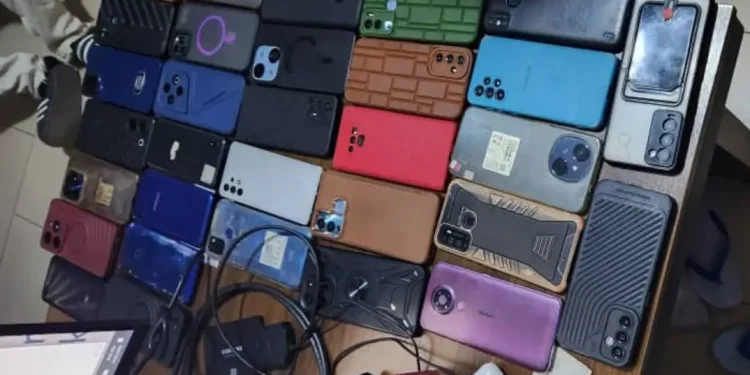Police across 14 African countries just pulled off one of the biggest coordinated cybercrime crackdowns on the continent. Between late July and mid-August, officers arrested more than 260 people and seized over a thousand devices tied to scams that preyed on people online.
The suspects weren’t running small-time schemes. Investigators say they were part of sprawling networks using social media and other platforms to trick, blackmail, and steal from victims. Think romance scams—where fake lovers slowly coax money out of someone who thinks they’ve found a soulmate—or sextortion, where intimate videos get turned into blackmail.
What the operation uncovered
This wasn’t just police work within one country’s borders. It was a joint effort—Uganda, Kenya, Rwanda, Ghana, Nigeria, South Africa and seven more countries all joined forces in what INTERPOL called Operation Contender 3.0.
In just two weeks, officers traced IP addresses, pulled down fake domains, and froze 81 online infrastructures that scammers had been hiding behind. Along the way, they seized SIM cards, USB drives, and forged documents.
When the dust settled, investigators had identified more than 1,400 victims, with financial losses close to $2.8 million.
Stories behind the numbers
The statistics are shocking, but what struck me more were the details that came out country by country.
-
Ghana: Police there arrested 68 people and took 835 devices off the streets. Victims lost around $450,000—though investigators managed to recover about $70,000. Scammers had used stolen photos, fake courier fees, and customs tricks to squeeze money from victims. In sextortion cases, criminals secretly recorded intimate chats and then used the footage to demand cash.
-
Senegal: Twenty-two suspects were caught running scams where they impersonated celebrities online. Imagine being tricked into thinking you’re chatting with a famous actor or musician, only to be pressured for money. In all, 120 people lost around $34,000.
-
Côte d’Ivoire: A staggering 809 victims were identified here. Police say criminals set up fake profiles, lured people into sharing private photos, then turned those photos into weapons for blackmail.
-
Angola: Eight suspects were arrested for using forged documents and fake identities on social media. Their victims—28 of them—were scattered across both domestic and international borders.
Why this matters
If you’ve ever wondered whether romance scams or sextortion are “real problems,” the answer is yes, and they’re growing fast. INTERPOL says cybercrime units across Africa are seeing sharp rises in these cases. And the damage isn’t just financial—people come away humiliated, ashamed, and psychologically scarred.
Cyril Gout, INTERPOL’s Acting Executive Director of Police Services, didn’t mince words: “The growth of online platforms has opened new opportunities for criminal networks to exploit victims, causing both financial loss and psychological harm.”
A global problem with local faces
What stood out to me is how much of this depends on cooperation. The operation only worked because countries shared information quickly, sometimes with help from private firms like Group-IB and Trend Micro. And even then, the scams were deeply personal. Behind every statistic is someone who thought they were in love, or someone terrified their most private moments would go public.
It makes you think—how many of us would actually know if we were being manipulated like this? Could we spot a fake profile before it’s too late?
The bigger picture
This operation was backed by funding from the UK government through the African Joint Operation against Cybercrime project. And it comes on the heels of INTERPOL’s Africa Cyberthreat Assessment Report, which found that two-thirds of surveyed African countries see cybercrime making up a medium-to-high chunk of all reported crime.
That’s not a small detail. It shows that cybercrime isn’t some side issue—it’s moving closer to the center of Africa’s law enforcement priorities.

















